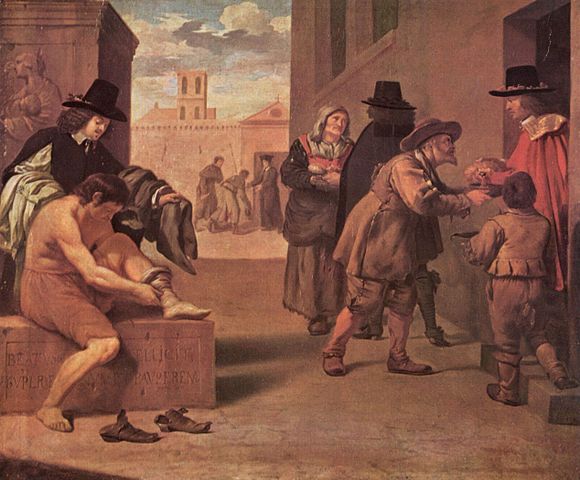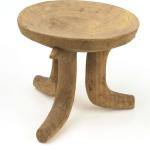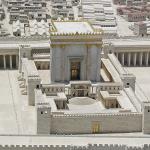***
This took place spontaneously in a Facebook post announcing a new paper of mine. Bethany is a very friendly evangelical with Calvinist leanings. Her words will be in blue.
* * * * *
We are justified by our faith and our works, and it is not of ourselves. It’s not a contradiction when James says we are justified by works, because if we are saved we will necessarily have works…
For example, you can’t control your own conception or birth, and Jesus metaphorically explained salvation as being “born again”. A baby is born, not of his own will, but of God’s. A baby cannot will himself into existence, and neither can one dead in trespasses and sins will themselves into being made alive in Christ.
How do we know a baby is alive? By seeing if he is breathing, kicking, sucking, etc. By the baby’s works, we find evidence he has been born. This is the way we come to the conclusion that he is alive.
In the same way, our works “justify” in that they provide evidence for our rebirth. A baby can only be born once, and likewise one can be spiritually born only once.
We don’t disagree on those matters, as I noted.
So you don’t believe we in any way earn our salvation?
We can’t earn our salvation by our own efforts, considered in isolation from God’s grace (the heresy of Pelagianism). We can, however merit in God’s sight by applying the gift of God that He gave us (as St. Augustine put it: God “crowning His own gifts”), and working together with Him. After regeneration and initial justification we can do meritorious works, enabled and bathed in God’s grace.
These are not abstractly separated from salvation and put in a neat little box of “sanctification only,” as Reformed and other Protestants do. Since true biblical justification is infused and transformative, works are part of justification.
Hence we find that, e.g., in 50 Bible passages I’ve found about the final judgment, only works are mentioned and never faith. One cannot help but to find that striking.
If they’re not completely separated from salvation, isn’t that saying they play a role in achieving salvation?
Yes, in the sense I said. The problem is that Protestants almost always misunderstand the exact sense that Catholics believe in. 90% of all such discussions require time spent simply explaining what we believe, because the misunderstandings are so massive and systematic.
If you read my recent paper vs. James White, I explain much of this in it. I wrote in the paper, citing one of my own books [Bible Proofs for Catholic Truths]:
For the Catholic, justification is not the same thing as salvation or the attainment of eternal life. It can be lost or rejected by means of human free will and disobedience. So, to assert “justification by works,” even in a qualified sense, is not at all the same as asserting salvation by works. Therefore, it is scripturally improper to assert either salvation by works alone or salvation by faith alone. They are never taught in Holy Scripture, and are both denied more than once. Justification by faith or justification by works can be asserted in a limited sense, as Scripture does: always understood as hand-in-hand with the other two elements in the grace-faith-works triumvirate.
Also from the paper:
Catholics believe we are justified by faith and also by grace-based works done by the regenerate believer in conjunction with faith, as a co-laborer with God (1 Cor 3:9; 15:10; 2 Cor 6:1). . . . The Bible elsewhere freely places Rahab’s faith and works together. They are of a piece: neither can or should be ignored:
Hebrews 11:31 [RSV] By faith Rahab the harlot did not perish with those who were disobedient, because she had given friendly welcome to the spies.
Notice the “because” in the verse? Moreover, it is not foreign Scripture, to expressly state that works are the cause of justification or even a central criterion for eternal life. We’ve already noted this in Paul, above. Here it is again (repetition being a good teaching device):
Romans 2:13 For it is not the hearers of the law who are righteous before God, but the doers of the law who will be justified.
So you don’t believe the works themselves in any way merit salvation, except in the sense Protestants believe… That our works are the fruit of our salvation and not our means of earning or keeping it?
I did read most of the article… Okay I skimmed it… But I do feel confused about what you’re saying because it sounds like you’re saying two things.
I have talked to many Catholics who believe that you must work in order to enter heaven… Not as a result of salvation but the cause of it. I once had a friend who I asked, if you were standing before God and he asked you why he should let you into heaven, what would you say? She replied, not mentioning Christ once, but listing her various works.
And she was very scriptural, because that is what the Bible always gives as a reason to enter heaven. I found 50 of these passages.
But in the case of Rahab the harlot, the Bible also refers to her faith, which was the cause of her works.
I will send you my book on salvation: e-book in a PM. I also have lots of material on my Justification and Salvation page that goes over all these sorts of questions.
Thanks Dave, I’ll read it.
If we can tell God that he should let us in on the basis of our works, then that nullifies, “lest any man should boast.”
Why does Scripture mention works only every time it discusses the last judgment and being let into heaven or sent to hell? Matthew 25 is the classic . . . I wouldn’t argue that this means faith is no factor, but the fact remains that it is absent in all those accounts. Therefore, works cannot be separated from the equation of final salvation. But they are always accompanied by faith and enabled by God’s free grace.
It’s not boasting about works, but showing one’s genuine faith via works, as in James; showing that it is a real faith and not dead, lifeless, unfruitful faith.
It’s showing faith that on the basis of works, and not Christs atonement, God should allow you into heaven though. The question was “why should I let you in heaven”. If the answer to “why” is “because I was good”, that is boasting in your works to enter heaven.
The Bible talks about works the same reason I say a baby is alive because of his works (breathing, crying, etc.) Could a baby boast that he breathes? Or cries? Those abilities only came through the credit of God.
Whatever you call it; it’s scriptural. Our answer to God’s question of why we should go to heaven when we stand before Him, could incorporate any one or all of the following 50 responses: all perfectly biblical, and many right from the words of God Himself:
1) I am characterized by righteousness.
2) I have integrity.
3) I’m not wicked.
4) I’m upright in heart.
5) I’ve done good deeds.
6) I have good ways.
7) I’m not committing abominations.
8 ) I have good conduct.
9) I’m not angry with my brother.
10) I’m not insulting my brother.
11) I’m not calling someone a fool.
12) I have good fruits.
13) I do the will of God.
14) I hear Jesus’ words and do them.
15) I endured to the end.
16) I fed the hungry.
17) I provided drink to the thirsty.
18) I clothed the naked.
19) I welcomed strangers.
20) I visited the sick.
21) I visited prisoners.
22) I invited the poor and the maimed to my feast.
23) I’m not weighed down with dissipation.
24) I’m not weighed down with drunkenness.
25) I’m not weighed down with the cares of this life.
26) I’m not ungodly.
27) I don’t suppress the truth.
28) I’ve done good works.
29) I obeyed the truth.
30) I’m not doing evil.
31) I have been a “doer of the law.”
32) I’ve been a good laborer and fellow worker with God.
33) I’m unblamable in holiness.
34) I’ve been wholly sanctified.
35) My spirit and soul and body are sound and blameless.
36) I know God.
37) I’ve obeyed the gospel.
38) I’ve shared Christ’s sufferings.
39) I’m without spot or blemish.
40) I’ve repented.
41) I’m not a coward.
42) I’m not faithless.
43) I’m not polluted.
44) I’m not a murderer.
45) I’m not a fornicator.
46) I’m not a sorcerer.
47) I’m not an idolater.
48) I’m not a liar.
49) I invited the lame to my feast.
50) I invited the blind to my feast.
Where does Jesus get glory in all of that list?
It’s not boasting. We understand that it is from God. Yet we still did them, working with God’s grace, as Paul says: “working together with him . . . ” “Boasting” in the sense that Paul condemns would be saying that “I did these works with no help from God’s grace at all; therefore I have earned heaven.” That is the Pelagian heresy.
What he did on Calvary just seems ignored… And that is my main problem. He became sin for us. All of our sin was laid on him. By his stripes we were healed. Sin was inputed to him, and righteousness was imputed to us.
He gets the glory as the source of the grace that enabled all the works. This is what the Bible says: all that is straight from biblical accounts. If you say it is not giving God glory then your beef is with the Bible itself and Jesus and Paul’s and other’s words, not with Catholicism. Read Jesus’ words in Matthew 25:
Matthew 25:31-46 When the Son of man comes in his glory, and all the angels with him, then he will sit on his glorious throne. Before him will be gathered all the nations, and he will separate them one from another as a shepherd separates the sheep from the goats, and he will place the sheep at his right hand, but the goats at the left. Then the King will say to those at his right hand, `Come, O blessed of my Father, inherit the kingdom prepared for you from the foundation of the world; for I was hungry and you gave me food, I was thirsty and you gave me drink, I was a stranger and you welcomed me, I was naked and you clothed me, I was sick and you visited me, I was in prison and you came to me.’ Then the righteous will answer him, `Lord, when did we see thee hungry and feed thee, or thirsty and give thee drink? And when did we see thee a stranger and welcome thee, or naked and clothe thee? And when did we see thee sick or in prison and visit thee?’ And the King will answer them, `Truly, I say to you, as you did it to one of the least of these my brethren, you did it to me.’ Then he will say to those at his left hand, `Depart from me, you cursed, into the eternal fire prepared for the devil and his angels; for I was hungry and you gave me no food, I was thirsty and you gave me no drink, I was a stranger and you did not welcome me, naked and you did not clothe me, sick and in prison and you did not visit me.’ Then they also will answer, `Lord, when did we see thee hungry or thirsty or a stranger or naked or sick or in prison, and did not minister to thee?’ Then he will answer them, `Truly, I say to you, as you did it not to one of the least of these, you did it not to me.’ And they will go away into eternal punishment, but the righteous into eternal life.
But notice that the sheep asked him, when did we do these things? They did not recall their goodness for merit.
I hope you know I’m not trying to be annoying with these questions.
You’re not interacting with the biblical data . . . . this was the same problem with White’s chapter. He read into the text things that weren’t there, whereas I exegeted it and gave relevant cross-references.
When we stand before a righteous and holy God, can we really see ourselves as righteous except by his imputed righteousness? Isaiah cried, I am a man of unclean lips… Was he not a righteous man?
Yes, and now you’ve stumbled into why purgatory is so necessary. Thanks! We make it to heaven because we’ve exercised faith by God’s grace, in Jesus; accepting His death on the cross on our behalf; exhibited by works. Now we have to be made actually holy and without sin, and that’s where purgatory is necessary for almost all of us.
No; that is the reason that atonement is necessary. That is why when God asks, “why should I let you into heaven?” I can say , “thank you for providing a lamb to take place of me, taking on the full penalty for all of my sins, so that I could enter heaven. Thank you for your promise, your free gift.” Purgatory implies that Jesus payment was not enough.
You can say that; sure. My point was that whenever Scripture deals with this exact topic, that is never what it describes as being said; rather, it’s always works. And that is what you have to grapple with: why that is. The same Jesus also said:
Matthew 7:16-23 You will know them by their fruits. Are grapes gathered from thorns, or figs from thistles? [17] So, every sound tree bears good fruit, but the bad tree bears evil fruit. [18] A sound tree cannot bear evil fruit, nor can a bad tree bear good fruit. [19] Every tree that does not bear good fruit is cut down and thrown into the fire. [20] Thus you will know them by their fruits. [21] “Not every one who says to me, `Lord, Lord,’ shall enter the kingdom of heaven, but he who does the will of my Father who is in heaven. [22] On that day many will say to me, `Lord, Lord, did we not prophesy in your name, and cast out demons in your name, and do many mighty works in your name?’ [23] And then will I declare to them, `I never knew you; depart from me, you evildoers.’
Ok well I will agree to disagree for now.
Like I said, you’re not disagreeing with me, but multiple instances of inspired Scripture. All I’ve done is cite Scripture on this. James explains all of this nicely, and that was the topic of White’s chapter that I replied to:
James 2:14-26 What does it profit, my brethren, if a man says he has faith but has not works? Can his faith save him? [15] If a brother or sister is ill-clad and in lack of daily food, [16] and one of you says to them, “Go in peace, be warmed and filled,” without giving them the things needed for the body, what does it profit? [17] So faith by itself, if it has no works, is dead. [18] But some one will say, “You have faith and I have works.” Show me your faith apart from your works, and I by my works will show you my faith. [19] You believe that God is one; you do well. Even the demons believe — and shudder. [20] Do you want to be shown, you shallow man, that faith apart from works is barren? [21] Was not Abraham our father justified by works, when he offered his son Isaac upon the altar? [22] You see that faith was active along with his works, and faith was completed by works, [23] and the scripture was fulfilled which says, “Abraham believed God, and it was reckoned to him as righteousness”; and he was called the friend of God. [24] You see that a man is justified by works and not by faith alone. [25] And in the same way was not also Rahab the harlot justified by works when she received the messengers and sent them out another way? [26] For as the body apart from the spirit is dead, so faith apart from works is dead.
Echoed by Paul:
Romans 2:5-13 But by your hard and impenitent heart you are storing up wrath for yourself on the day of wrath when God’s righteous judgment will be revealed. [6] For he will render to every man according to his works: [7] to those who by patience in well-doing seek for glory and honor and immortality, he will give eternal life; [8] but for those who are factious and do not obey the truth, but obey wickedness, there will be wrath and fury. [9] There will be tribulation and distress for every human being who does evil, the Jew first and also the Greek, [10] but glory and honor and peace for every one who does good, the Jew first and also the Greek. [11] For God shows no partiality. [12] All who have sinned without the law will also perish without the law, and all who have sinned under the law will be judged by the law. [13] For it is not the hearers of the law who are righteous before God, but the doers of the law who will be justified.
I’m sorry I realized that sounded abrupt. I didn’t mean it to sound that way. I had a baby crying in the background so had to tend to him.
We have both cited Scripture. You more than me since I was basically asking questions, but I agree with all the scripture you post. We have disagreement on the interpretation of those scriptures. You agree there, I’m sure.
No problem, Bethany!


















